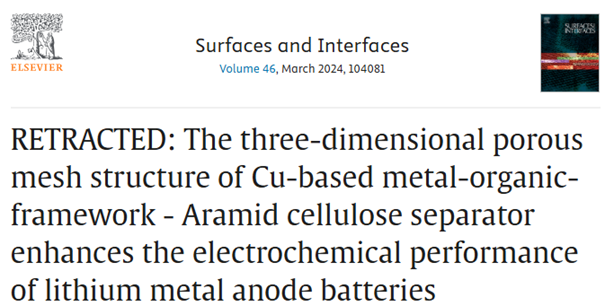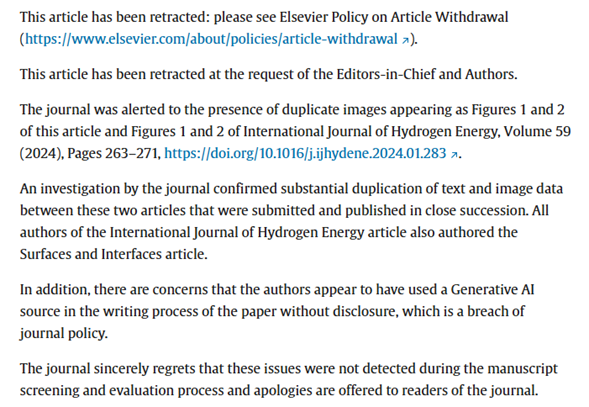How AI Can Jeopardize Your Career and How to Avoid It
There can be no doubt that things move fast in the world we live in. Really fast.
Today's breaking news is quickly usurped by tomorrow's. The battle for the spotlight is a maelstrom of viral videos and outrageous statements, and such a flash-in-the-pan environment can lead to rash decisions and risky shortcuts.
The pressure to publish can be severe. Academic institutions, for example, are committed to the race to report the next big discovery, and it is researchers that must shoulder the burden and deliver. Oftentimes, promotions and career advancements are at stake, hinging on that next paper.
Even worse, it is not just a single publication that is required but many. This is when, late at night and alone in the office, a desperate researcher might turn to ChatGPT or another generative AI platform to write their paper.
Is it a good idea to rely on AI to write a paper for you?
The usefulness of large language models like ChatGPT is well known. However, depending on them as a single, quick-fix solution without the insight and expertise of a real, human collaborator could result in an embarrassing episode—one that could put your reputation and career at risk.
Take the infamous case of a now-retracted paper published by Elsevier, which began with the unmistakably AI-generated line "Certainly, here is a possible introduction for your topic." At the time, this obvious AI boilerplate highlighted a troubling trend: Scholars are submitting work generated—sometimes entirely—by AI, without appropriate human oversight.


This is what you see when you try to access the article now.
According to research published by Springer Nature, authors of retracted papers—especially those early in their careers—often leave the world of scientific publishing altogether. This is particularly true when the retraction draws public or institutional attention.
The conversation about AI dependence is not limited to whispered doomsaying within the learned halls of universities and publishing houses; it is prevalent in the media too, potentially leading to the public's mistrust of published scientific advancements.
The Guardian reported that retractions by journals in the event of fabrication have skyrocketed in recent years—from over 4,000 in 2022 to more than 10,000 in 2023. Many cases are linked to the overuse of AI, signaling an urgent need for transparency and oversight.
Publishers aren't just watching—they're acting right now.
The first is Geppetto that divides a manuscript into sections and cross references them against each other to check for AI-generated text. If AI generation is suspected, Springer Nature staff will investigate.
The second is Snappshot. This tool is focused on PDFs and images, which Springer Nature says are often duplicated without consent.
In short, using AI without human oversight may seem efficient but it can cost you your credibility, your collaborators, and your career.
While AI can be a useful tool, it cannot compare against the experience, insight and accountability of an editorial partner. A fellow expert in the field understands your research, your goals, and the importance of submitting your work ethically in a way that a machine cannot.
Scribendi provides just that: collaboration, iteration, and trustworthy partnerships in your discipline. Working with one of our experts means access to the support and insight of a professional in your field with a deep understanding of the publishing landscape.
Real people with real publication experience know what it takes for your manuscript to meet the standards of high-impact journals but, more importantly, they can advise you on what crucial data, supporting information, or graphic to add to take your study to the next level.
Furthermore, they can suggest which reviewers and which journal are the optimal pick for you. Submitting your work for publication is full of complex, career-shaping decisions, calling for experience over quick-fix editing software.
Avoid the pitfalls that AI would miss or even lead you into by trusting someone with the analytical skills and know-how born of real, personal experience in academic publication.
Rather than taking a gamble on AI at a time when journal and peer scrutiny is greater than ever, consider beginning an impactful, professional partnership that you can rely on now and into the future.






